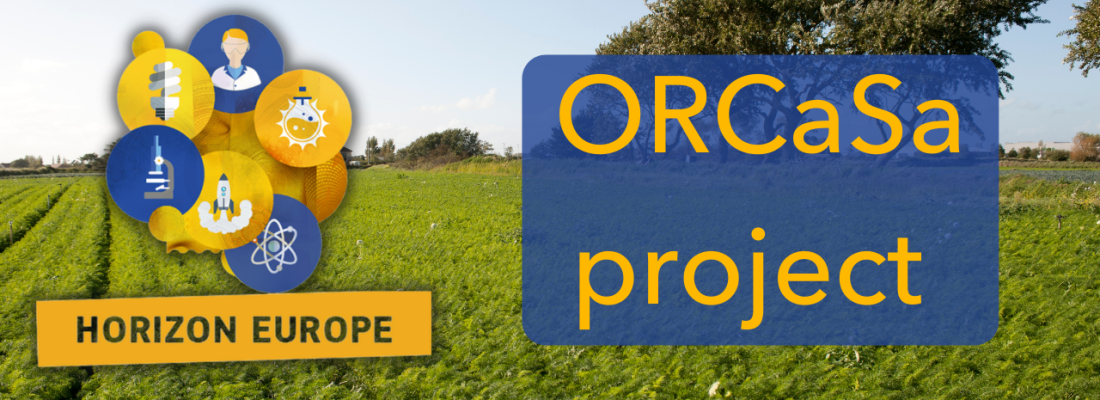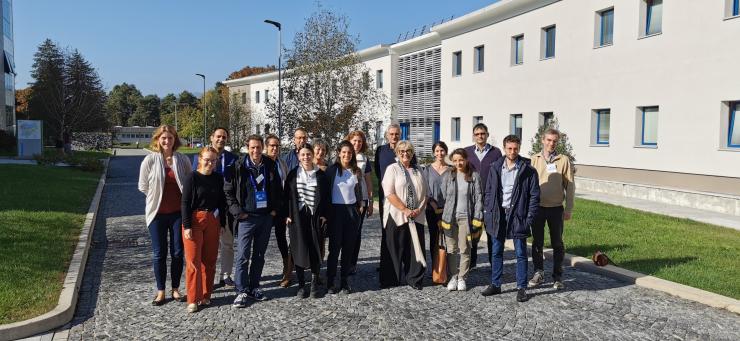Agroecology Reading time 3 min
Launch of the Horizon Europe ORCaSa project: Global coordination of research and innovation on soil carbon
Published on 28 October 2022

As a major reservoir of global carbon – containing more than 1500 billion tonnes, which is almost twice as much as the atmosphere or plants – soils are central to carbon flows in the terrestrial system. Scientists and farmers want to develop a strategy that will prevent soil carbon from entering the atmosphere, in order to trap greenhouse gases. All soils are concerned: grasslands, arable land and forest soils. Rich in carbon, organic matter is also essential for retaining the water, nitrogen and phosphorus that are essential to agricultural land, biodiversity and protecting water resources.
Europe needs to join its research and innovation forces in order to reach the targets of the Paris Agreement commitments (COP21, the voluntary 4 per 1000 initiative[1]) regarding land degradation neutrality and biodiversity, and to support the European Union’s Green Deal. In this context, and as early as 2017, the European Commission provided support for the 1st Coordination Action (CIRCASA) led by INRAE, which brought together over 100 key stakeholders and 500 scientists from around the world. The aim of CIRCASA was to take stock of current understanding regarding carbon sequestration in agricultural soils, identify stakeholders’ needs for knowledge and encourage the creation of new knowledge.
These efforts have intensified in 2022. Through its Horizon Europe funding programme, the European Commission is supporting a 2nd Coordination Action (CSA) led by INRAE, called ORCaSa. This project was officially launched in Ispra (Italy) during a meeting on 26-28 October 2022 of the Joint Research Centre (JRC) in partnership with the European Soil Observatory (EUSO).
ORCaSa will last 36 months and its principal objective is to deploy an international research consortium (IRC) that will coordinate research and innovation on soil carbon and related issues at a global level. ORCaSa will also offer a unique strategic research and innovation agenda (SRIA) focused on agricultural and non-agricultural land. In parallel, the programme will develop KP4SoilCarbon, a central knowledge platform to share information on carbon. Finally, it will enable the preparation of an internationally-recognized, innovative and low-cost MRV system (Monitoring, Reporting and Verification) for SOC stock changes.
To achieve this overall objective, ORCaSa brings together European partners and and six regional nodes covering the five continents around an ambitious work plan working hand in hand with the international community.
[1] The “4 per 1000 initiative on soils for food safety and the climate” launched during COP21 in Paris in 2015, was designed by INRAE scientists to restore soil fertility and trap greenhouse gases.

Project features
ORCaSa- Operationalising international Research Cooperation on Soil Carbon – 2022-2025
Coordination by INRAE – 12 partners: INRAE (FR), CNRS (FR), CIRAD (FR), ANR (FR), ISRIC (NL), ARCTIK (BE), Vizzuality (ES), FARA (GHA), CSU (USA), CSIRO (AU), EMBRAPA (BRA), SFRI (VNM)
European funding under the Horizon Europe programme: €3,092,966
Horizon Europe project no. 101059863
